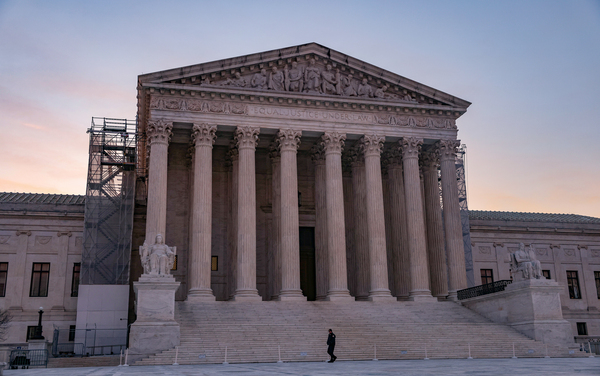Walz, DFL leaders, cast doubt on full repeal of state Social Security tax
December 7, 2022
In an ever-brighter world, tourists travel north for truly dark skies
December 8, 2022White Earth Nation leaders say proposed large farming operations threaten the Band’s health and safety, water and land resources, and economic security.
On Nov. 18, the tribal council approved a two year moratorium on projects within the boundaries of the reservation, located in northwestern Minnesota.
Tribal officials said the ban will allow time for development of regulations for large animal feeding operations.
“We're going to do our due diligence here back home with our treaties and our sovereignty,” said Tribal Chairman Michael Fairbanks at a the meeting to approve the moratorium.
Fairbanks said Minnesota agencies regulating such operations were informed about the White Earth Nation plans for a moratorium.
“And we're going to do it in a good positive way to create our own laws and create what we want on this reservation, not what they want on this reservation,” he said.
Concern for wild rice
Tribal officials said the White Earth Reservation includes 530 lakes, 300 miles of rivers and streams, and substantial groundwater resources.
Fairbanks pointed to a specific large project he said would threaten to pollute some of those streams.

“And they flow directly into our Big Rice lake,” said Fairbanks. “So you’ve got to remember that we're protecting our waters but also we're protecting our manoomin. It's so important. They don't realize how important that our wild rice is to our economy here at White Earth.”
Tribal officials said they felt an urgency to act because of the increase in proposed large livestock operations on and near the Reservation.
Layers of regulatory oversight
Large livestock operations are regulated at a variety of levels. The Minnesota Pollution Control Agency provides permits under the federal Clean Water Act and also enforces state regulations. The Department of Natural Resources provides water use permits. Local governments can place restrictions on such operations through local zoning laws.
The Minnesota Department of Agriculture gives some regulatory oversight of land application of manure from livestock farms, and has a program to help local governments and farmers with planning, zoning and siting issues related to large livestock operations.
Becker county overlaps the White Earth reservation boundaries. The county imposed a one year feedlot moratorium in September after concerns were raised about proposed large livestock operations.
“I think we have to put something in place so we can control the huge growth, and at least have some better understanding of what the concerns are for us,” said Becker County Commissioner Barry Nelson, who is also a farmer.
Despite the county moratorium, Nelson said he is concerned about the impact of the White Earth moratorium and potential tribal regulations.
“The tribes authority, that question, that's huge,” said Nelson. “How they can have that authority on private landowners, you know, that private landowner doesn't have any say on who's on the tribal council? It's concerning.”

Nelson said he hopes the county can “get around the table” with White Earth officials and discuss the issue.
Increasing use of tribal authority
Tribal Nations have increasingly exercised regulatory authority, and the Federal Environmental Protection Agency recently announced a proposal to revise the federal water quality regulations to better protect tribal rights under the federal Clean Water Act. The agency is currently taking public comment on the proposed regulatory changes.
Minnesota agencies are saying little about the White Earth moratorium.
The Department of Agriculture said in a statement that it “recognizes the sovereign rights of the White Earth Nation, including their right to implement a moratorium.” The agency said it looks forward to conversations with tribal officials about the issue.
The Minnesota Pollution Control Agency and the Department of Natural Resources have not yet responded to a request for comment.






